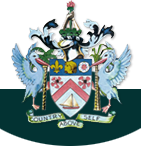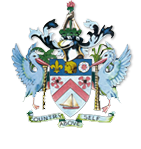In accordance with the Anti-Money Laundering Regulations, 2011 (AMLR) and the Anti-Terrorism (Prevention of Terrorist Financing) Regulations, 2011, (ATR), beneficial owner or controller:
- means a natural person who
- ultimately owns or controls a customer or other person on whose behalf a transaction is being conducted; or
- exercises ultimate, effective control over the management of a legal person or other entity; and
- includes ultimate ownership or control whether it is direct or indirect; but
- does not extend to a body corporate, the stock or shares of which are admitted to trading on a regulated market.
Pursuant to the Financial Services (Implementation of Industry Standards) Regulations, 2011 (FSIISR), all regulated entities, businesses or persons must regularly monitor beneficial owners of legal persons and arrangements and ensure that verification checks are carried out on any new beneficial owners, the identity of whom have come to light as a result of such monitoring or otherwise.
Basic information on Companies incorporated under the Companies Act Cap. 21.03 is obtained and recorded in accordance with sections 4, 5, 6, 7 and 8. Information includes the corporation’s name; number; purpose; registered agent; registered office; aggregate number of shares which the corporation shall have authority to issue, number of registered shares, names and addresses of initial directors and the name and address of the incorporator. Any person who has paid the prescribed fee is entitled to the inspection and production of documents kept by the Registrar in accordance with Section 220.
Additionally, corporations are under an obligation to maintain basic information, such as:
- Minutes of shareholders and of actions taken on consent by shareholders.
- Minutes of directors and of actions taken on consent by directors.
- Register of shareholders which contains the names and addresses of all registered shareholders, the number and class of shares held by each and the dates when they became the owners of record thereof.
- Proper books and records including where applicable, material underlying documentation including contracts and invoices and should reflect details of:
- all sums of money received and expended by the corporation, and the matters in respect of which the receipt and expenditure takes place; and
- all sales and purchases and other transactions and the assets and liabilities of the corporation.
The books and records should:
- correctly explain all transactions;
- enable the financial position of the corporation to be determined with reasonable accuracy at any time; and
- allow financial statements to be prepared.
Every company shall keep accounting records which are sufficient to show and explain its transaction, in accordance with Section 103. The records shall be preserved by the Company for 12 years from the date on which they are made.
Similar requirements are in place for other Entities registered with the Financial Services Regulatory Commission.







